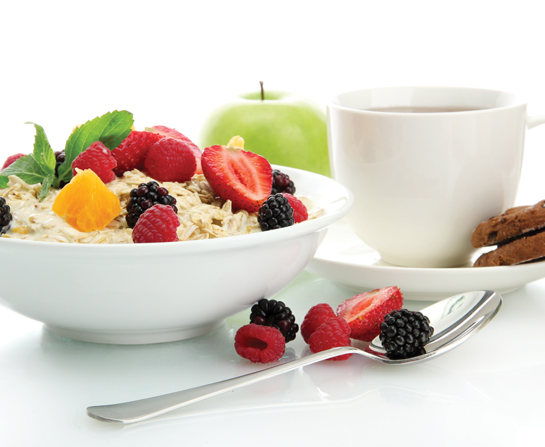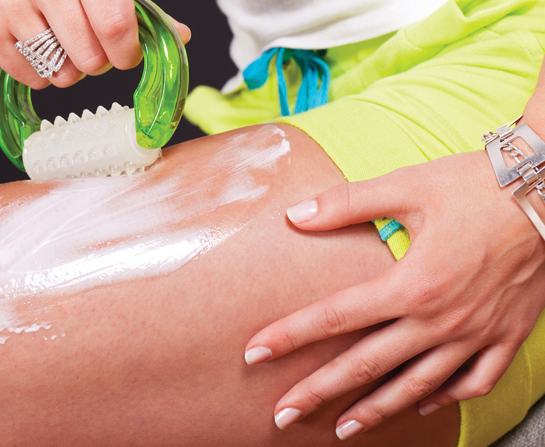Going Green, Baby! (Part 2)
April 29, 2022 Return
Words Lim Teck Choon
|
In Part 1, dietitian Edna Loh shared some nutritional considerations for vegetarians and vegans, focusing on protein, iron and vitamin B12. This time, she continues the discussion by shining the spotlight on vitamin D, calcium, iodine and zinc. Whether you are considering or already practising the vegetarian or vegan diet, read on to find out how you can meet your daily nutritional needs while staying true to yourself.
Vitamin D

Vitamin D has been demonstrated through research to support calcium in the development of strong bones. It also plays a role in regulating our immune system as well as the life cycle of the cells in our body. Also, vitamin D deficiency has been linked to many health conditions, including breast cancer, colon cancer, prostate cancer and heart disease.
Therefore, it is quite worrying when Edna Loh shares that, based on studies in Asia, it is found that we Asians are generally not getting enough of this vitamin. This is the case for vegetarians as well as non-vegetarians.
Good Sources of Vitamin D
Do you know that some researchers consider vitamin D the “accidental vitamin”? This is because “vitamin” these days is defined as an essential nutrient obtained via diet, and yet, according to Edna Loh, there are very few types of foods that contain vitamin D naturally.
Sunlight. The best “source” of vitamin D remains sunlight – our skin produces the vitamin while exposed to sunlight. Not all sunlight is equal, though: exposure to the afternoon sun will yield optimal vitamin D production compared to other times of the day.
Supplements. Edna Loh shares that vitamin D supplements are typically available in two forms: vitamin D2 or vitamin D3. To date, there is no scientific evidence to suggest which one is more effective, but it has been found that vitamin D2 is less potent when taken at high doses.
Diet. This can be a tricky issue, as explained below.
The Tricky Issue
Studies have found that vitamin D from animal-based foods appears to be approximately five times more potent than other forms of vitamin D. The addition of meat (beef, pork, chicken, turkey) and eggs can increase the estimated levels of vitamin D in one’s diet by as much as two to 18 times!
For vegetarians who still include eggs and dairy products in their diet, they can still obtain their vitamin D via those foods. However, those who exclude those foods have more limited options to choose from: soy milk products and orange juice, for example.
Useful Tips for Those Who Do Not Eat Meat, Eggs and Dairy Products
- Include fortified soy milk products and fortified orange juice into one’s daily diet.
- Some mushrooms provide vitamin D2 in variable amounts. UV-treated mushrooms, especially, have enhanced vitamin D content.
- Some researchers recommend exposing the face, arms, legs or back (without using sunscreen) to sunlight between 10 am to 3 pm, at least two times a week.
- One can also consider using commercial tanning beds that emit 2%–6% UVB radiation.
Calcium
If we are going to list down every important role that calcium plays when it comes to our health and body functions, this article will need a few dozen more pages! Its most notable role is in the building and maintenance of healthy bones and teeth – 99% of our bones and teeth are made up of this mineral. Additionally, calcium deficiency has been linked to increased risk of bone problems (fractures, osteoporosis) as well as diabetes.
Good Sources of Calcium
Dairy products and eggs are rich sources of calcium. And therein lies the tricky issue: vegetarians who do not eat these foods as well as vegans will have to look for alternative ways to obtain this mineral.
The Tricky Issue
Edna Loh mentions that an Oxford study found that bone fracture rates are much higher in vegans as compared to omnivores and lacto-ovo-vegetarians. This is due to a significant reduction of readily available calcium from their diet because of the omission of milk and milk products.
Useful Tips for Those Who Do Not Eat Meat, Eggs and Dairy Products
Do eat these. Here are some vegan-friendly sources of calcium as per Edna’s recommendation:
- Calcium-fortified soy milk. One cup meets 30% of the daily value (DV).
- Firm tofu. Half a cup meets 25% DV.
- Soft tofu. Half a cup meets 14% DV.
- Calcium-fortified breakfast cereal. 1 cup can meet 10-100% DV depending on the brand. Check the nutritional information panel on the cereal box to be sure.
- Turnip greens (lobak hijau). Half a cup meets 10% DV.
Try to limit or avoid these. Edna Loh advises limiting the intake of the following as they can either reduce the absorption rate of calcium by our digestive system or increase the rate of calcium excretion.
- Foods with high sodium (salt) content.
- Caffeine. One shot or 200 mg of caffeine can cause the loss of two to three milligrams of calcium. One cup of coffee a day is fine, but the calcium loss can add up if we drink excessive amounts of caffeine-containing beverages!
- Alcohol.
- Foods and drinks with high phosphorus content, such as carbonated soft drinks.
Iodine
The mineral iodine plays an important role in the control of our body’s metabolism. More specifically, it is an important “ingredient” in the production of thyroid hormones. Given the role these hormones play in bone and brain development, it is important for infants and pregnant women to get enough of this mineral from their diets.
Good Sources of Iodine
Seafood such as cod, shrimp, etc are rich sources of iodine, which of course is not an option for those who choose to omit these foods from their daily meals. There are also plant sources such as potatoes, bananas, prunes, corn and green beans, but their iodine content is generally lower than foods of animal origin. See the tricky issue below.
The Tricky Issue
According to Edna Loh, the iodine content in soil is generally low, hence plants typically contain far less iodine than foods from animal sources. This is a problem because a study found that about 25% of its vegetarian participants and 80% of the vegan participants suffer from iodine deficiency. The investigators suspected that the omission of fish and seafoods from these participants’ diet can be a reason for this.
Iodine deficiency can lead to impaired thyroid function, which in turn can result in problems such as goitre, weight gain, fatigue and even depression. Among children, such a deficiency may lead to stunted physical as well as mental growth.
Useful Tips for Those Who Do Not Eat Seafood
- Coastal vegetables such as seaweeds may contain more iodine than other types of vegetables, and hence can be considered. However, seaweeds should not be the main source of iodine because they may sometimes contain too much iodine, or they may even be contaminated.
- Another option is iodized salt. A ¼ teaspoon can meet about 45% of the DV for iodine. However, iodized salt also contains sodium, so treat it like any other salt – as per the recommendation by the Malaysian Dietary Guidelines, limit salt intake to 5g or one teaspoonful a day.
- Pregnant vegans should consult their doctor to find out whether iodine supplements can be beneficial for both mother and baby.
Zinc
Among its many functions, zinc plays a significant role in maintaining our immune system, ensuring proper cell growth and supporting wound healing. Thus, zinc deficiency can leave us vulnerable to infections.
Good Sources of Zinc
Beans, legumes, nuts, seeds and whole grains are all plant-based sources of zinc. Given that these foods are staples of both vegetarian and vegan diets, normally there will be zinc present in the diet. Whether the amount of zinc is enough… well, that is the tricky issue.
The Tricky Issue
Edna Loh reveals that phytates – a naturally occurring compound found in plant foods, including whole-grains, legumes and other plant sources of zinc – can bind to zinc and reduce the ability of the digestive system to absorb that mineral. As a result, vegetarians and vegans typically need about 50% more zinc from their diet, compared to non-vegetarians, to meet their recommended daily intake.
Useful Tips for Vegans and Vegetarians to Boost Zinc Intake
- Soak beans, grains and seeds in water for a few hours before cooking. After that, let them sit until sprouts form. This will help increase the amount of zinc present in forms that can be more easily absorbed by the body.
- Choose leavened grain products (bread, for example) over unleavened ones (such as crackers). Edna explains that the leavening process will partially break down the phytates present in the grains and increase the amount of zinc that can subsequently be more easily absorbed by the digestive system.
If you like this article, do subscribe here.







